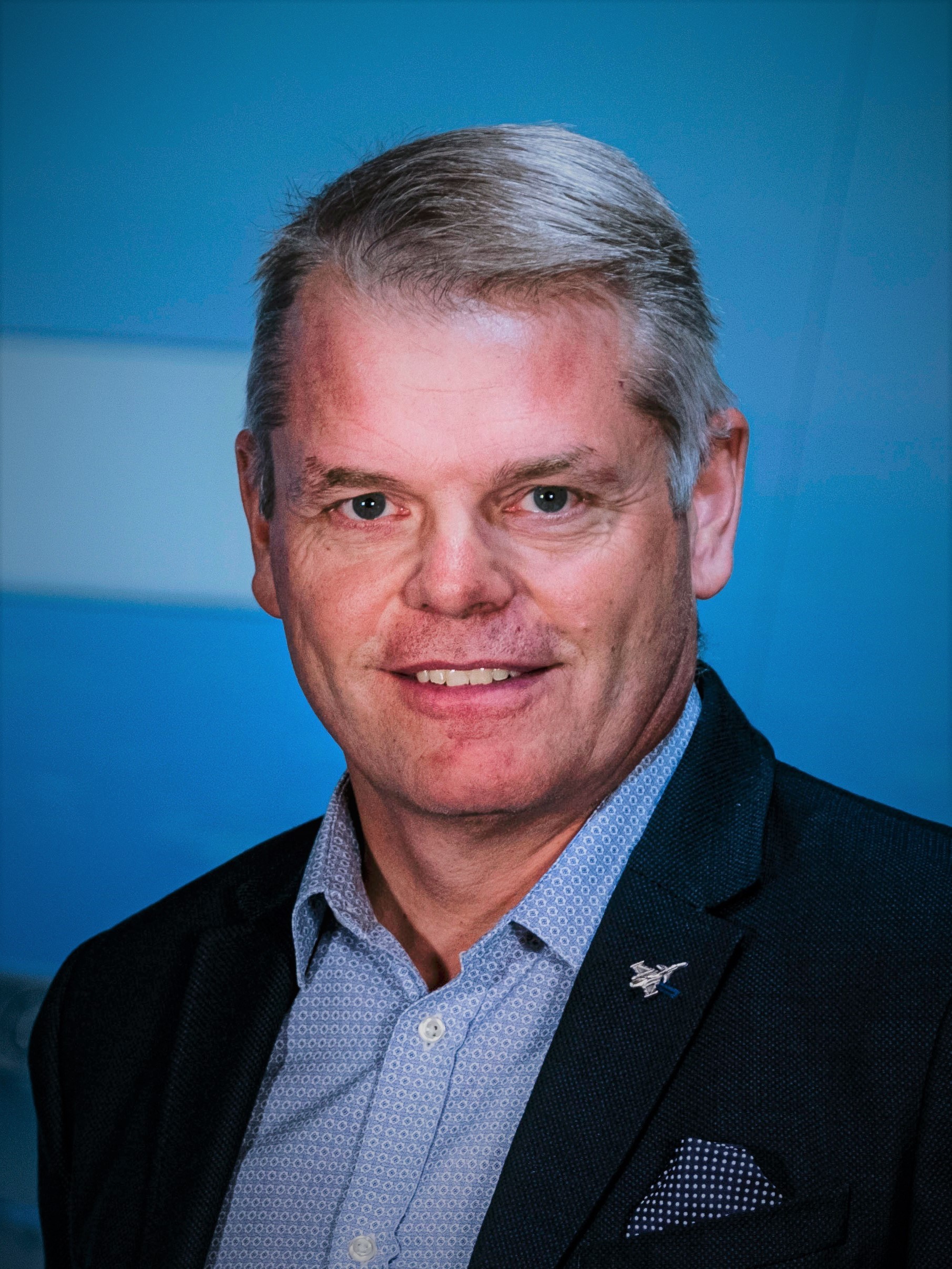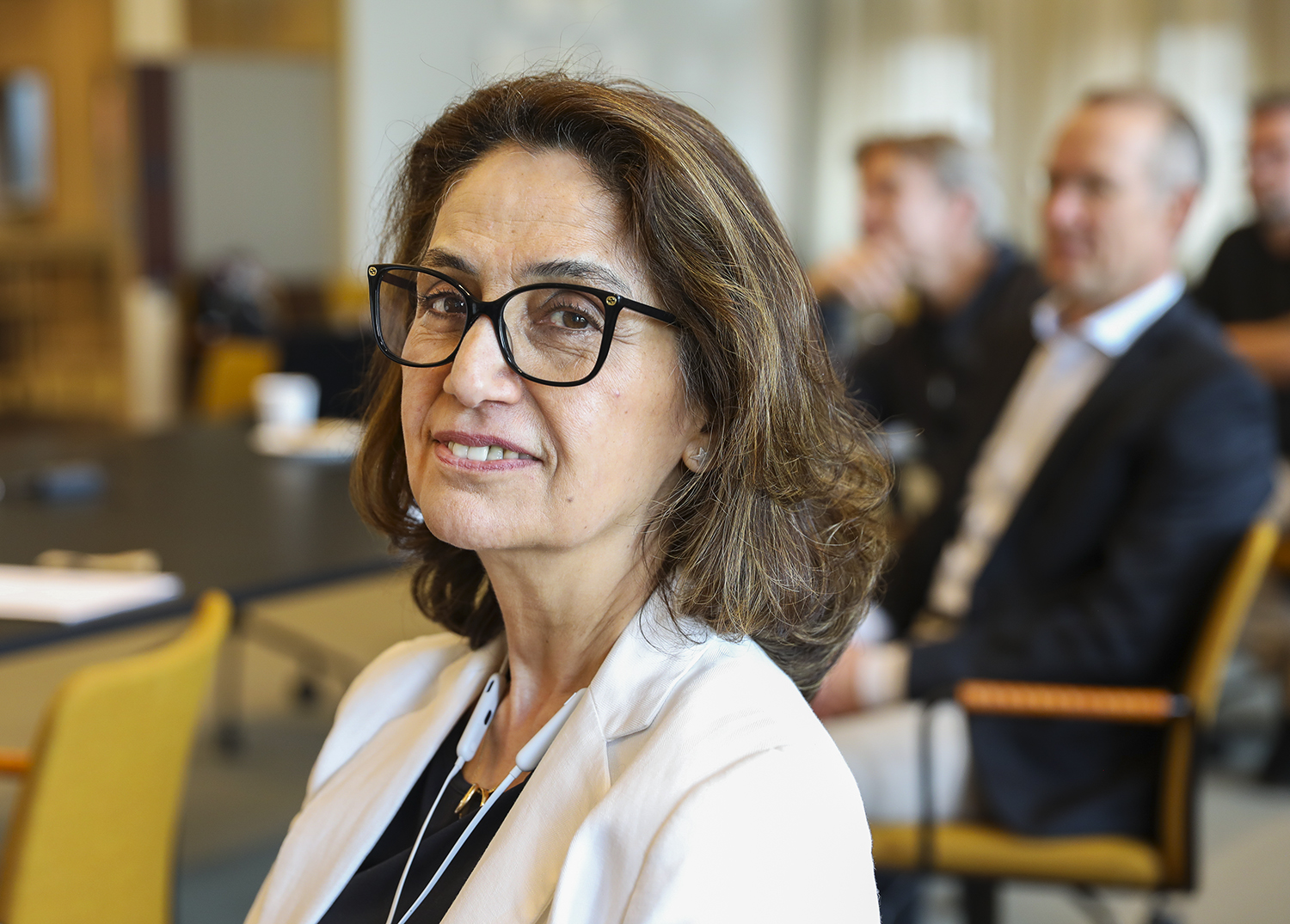ELLIIT Annual Workshop,
October 19 – 20, 2022
The ELLIIT workshop 2022 was held at Linköping University, Campus Valla, C-Building (see map). More information about how to get to Linköping University can be found here.
Program chairs was Fredrik Lindsten and Zheng Chen, Linköping University.
Program
Day 1 – Wednesday, October 19
10:15 - 11:00
Colosseum
Registration & Coffee
11:00 - 11:15
Visionen
Opening words
Erik G. Larsson, ELLIIT Director
Fredrik Lindsten, Program Chair
Zheng Chen, Program Chair
11:15 - 12:15
Visionen
Keynote: Quantum machine learning: an introduction
Osvaldo Simeone, King’s College, London
Chair: Zheng Chen (LiU)
Abstract
In the current noisy intermediate-scale quantum (NISQ) era, quantum machine learning is emerging as a dominant paradigm to program gate-based quantum computers. In quantum machine learning, the gates of a quantum circuit are parametrized, and the parameters are tuned via classical optimization based on data and on measurements of the outputs of the circuit. Parametrized quantum circuits (PQCs) can efficiently address combinatorial optimization problems, implement probabilistic generative models, and carry out inference (classification and regression). They can be instantiated within actual quantum computers via cloud-based interfaces accessible through several software libraries — such as IBM’s Qiskit, Google’s Cirq, and Xanadu’s PennyLane. This talk will provide a short introduction to quantum machine learning by describing the general methodology, PQCs, as well as applications to unsupervised and supervised learning. Current research on hybrid quantum-classical models and quantum error mitigation will also be summarized.
12:15 - 13:00
Visionen
ELLIIT Recruited Faculty
Daniel Jung (LiU), Root cause analysis of unknown faults in dynamic systems combining models and data
Viktor Larsson (LU), Localization and mapping from images
Chair: Johan Thunberg (HH)
13:00 - 14:00
Kårallen
Lunch
14:00 - 15:00
Visionen
Industry talks
Petter Bedoire (SAAB), Leadership @ SAAB
The presentation will cover how Saab is working understand customer needs and how to embrace new technologies to fulfill those needs. It will also cover Saabs approach to research in relevant areas.
Shiva Sander Tavallaey (ABB), R&D @ ABB
This presentation will provide an overall picture on the R&D organization and activities within ABB in general and Sweden in particular. It will also touch upon the main challenges and corresponding needs for further research and development.
Chair: Gustaf Hendeby (LiU)


15:00 - 17:00
Colosseum
Poster session & coffee
Day 2 – Thursday, October 20
08:30 - 09:30
Visionen
Keynote: Thinking Compositionally about Inference
Jan-Willem van de Meent, University of Amsterdam
Chair: Fredrik Lindsten
Abstract
Probabilistic programming draws on ideas from artificial intelligence, statistics, and programming languages. It attempts to combine these ideas in a manner that builds on their respective strengths. In this talk, I will discuss how we can integrate deep learning and importance sampling to perform inference in probabilistic programs. This approach has tremendous potential to make inference scalable, but requires model-specific designs for networks and samplers. I will show how programming language abstractions can make the design of these components more practical and accessible by allowing us to reason compositionally about importance samplers. This opens up opportunities for new model and inference designs, both in the context of simulation-based inference and in the context of deep generative models.
Here you can download Jan-Willem van de Meent´s presentation.
09:30 - 09:45
Visionen
Focus Periods update
Bo Bernhardsson (LU) and Elina Rönnberg (LiU)
09:45 - 10:15
Colosseum
Coffee Break
10:15 - 11:00
Visionen
ELLIIT Recruited Faculty
Susanna de Rezende (LU), Proofs for circuits and circuits for proofs: understanding efficient computation and automated proof search
Zheng Chen (LiU), Towards 6G with connected intelligence and massive IoT
Chair: Nauman bin Ali (BTH)
11:00 - 11:10
Visionen
Closing words
11:20 - 13:00
C1, C2, C3
Parallel tracks
Networks and Systems (C2)
11:20-11:45 Richard Pates (LU), Estimation and Control at Scale
11:45-12:10 Claudio Altafini (LiU), Consensus in concatenated opinion dynamics with stubborn agents: theory and application to the Paris agreement case study
12:10-12:35 Hazem Ali (HH), Advanced tool support for beyond 5G baseband processing
12:35-13:00 Emma Tegling (LU), Scale fragilities in distributed feedback control
Chair: Björn Landfeldt (LU)
Computer Science and Software (C3)
11:20-11:45 Håkan Grahn (BTH), BigData@BTH – Scalable resource-efficient systems for big data analytics
11:45-12:10 Emma Söderberg (LU), Making Code Review Fit for Purpose
12:10-12:35 Simin Nadjm-Tehrani (LiU), Where software security meets mobile communication
12:35-13:00 Elin Anna Topp (LU), Supporting users in supporting (autonomous) systems
Chair: Gunnar Cedersund (LiU)
Machine Learning (C1)
11:20-11:45 Jose M. Peña (LiU), Causal Machine Learning using Normalizing Flows, with applications in Sociology
11:45-12:10 Marco Kuhlmann (LiU), What Do Neural Language Models Learn about Language, and How Can We Even Know?
12:10-12:35 Pontus Giselsson (LU), Training of Generative Adversarial Networks
12:35-13:00 Pavlo Melnyk (LiU), Steerable 3D Spherical Neurons
Chair: Emina Alickovic (LiU)
13:00 - 14:00
Kårallen
Lunch
14:00 - 16:00
Room in parentheses
Mini-workshops
5G+/6G Wireless Technology. Organizer: Maria Kihl (LU) (C4)
Session 1: Short presentations of research currently performed outside of ELLIIT:
- Implementation of mMTC Activity Detection Algorithms” (Oscar Gustafsson, LiU)
- Antenna Design for Future Cars (Buon Kiong Lau, LU)
- Edge, AI, and Anomalies (Simin Nadjm-Tehrani, LiU)
- Energy-Efficient and Reconfigurable DSP Algorithms (Håkan Johansson, LiU)
- Cloud-based AR/VR services (Björn Landfeldt, LU)
- Smart Mobility for Logistics (Johan Thunberg, HH)
Session 2: Joint Discussion about potential collaborations, new projects etc.
Robotics and Autonomous Systems. Organizer: Erik Frisk (LiU) (C2)
- Short presentations from all participating projects
- Infrastructure at LiU and LU available to ELLIIT projects
- Collaboration opportunities, including research facilities at the universities and WARA-Robotics
- Other topics
The presentation of ELLIIT projects includes:
- A6: Robust Motion Planning
- A9: Safety and Resilience in Multi-Vehicle Behavioral Control for Autonomous Ground Vehicles
- B9: Collaborative Robotics
- B14: Autonomous Force-Aware Swift Motion Control
- C8: Situation Aware Perception for Safe Autonomous Robotics Systems
Data Collection, Processing and (Visual) Analytics. Organizer: Kostiantyn Kucher (LiU) (C3)
14:00–14:05: Opening Remarks (Kostiantyn Kucher, LiU)
14:05–14:25: Gentle Introduction to Visual Analytics (Kostiantyn Kucher, LiU)
This talk will provide an introduction to the fields of information visualization and visual analytics, which focus on interactive, human-centered approaches for exploration and sensemaking with data that may often be of abstract, complex, and high-dimensional nature. Visual analytic techniques and tools aim to combine interactive visual representations with computational approaches such as machine learning models to provide the best of both worlds to the analysts. In this talk, we will provide an overview of the basic concepts, techniques, and challenges in visual analytics as well as examples of domain applications with real-world data, which will hopefully serve as an inspiration for ELLIIT researchers and open up opportunities for future collaborations.
14:25–14:45: Collection, Integration, and Analysis of Medical Data Using Hybrid Digital Twin Models (Gunnar Cedersund, LiU)
There are a wide array of different data available in the medical domain: i) patient data available in hospital records, such as diagnoses, lab tests, images, etc; ii) data from wearable sensors such as activity clocks and smart phones; iii) prior knowledge and small-scale data from biological papers; iv) large-scale databases with thousands of patients characterized in a consistent way; v) omics-data, which measures all genes or proteins in a cell; etc. In this talk, I will give an overview of how we collect, analyze and integrate all of these data sources using a hybrid modelling approach. The approach includes a variety of different mathematical models, coming from bioinformatics, mechanistic multi-level modelling, and machine learning. Finally, the data and models are visualized and made interactive using new digital twin technologies, making use of morphing of medical images, animations of realistically looking meta humans, etc. These new models, data, and visualization possibilities make up a shared backend, which can be used by apps across the entire health journey: from education, exercise, and edutainment, to healthcare, rehabilitation, and eldercare.
14:45–15:05: RMaCzek: An Old Technique for New Data (Krzysztof Bartoszek, LiU)
One of the first fully quantitative distance matrix visualization methods was proposed by Jan Czekanowski at the start of the previous century. Recently, a software package, RMaCzek, was made available that allows for producing such diagrams in R. We will present the mathematical background behind the creation of these visualizations and illustrate it with some examples, including one with hierarchically (phylogenetically) dependent data.
15:05–15:25: Investigation of Tweet Propagation via Dynamical Models and Influencer Analysis (Joel Nilsson, LiU)
Social media are important sources of data for research on information diffusion with applications in e.g., marketing or politics, such as predicting whether an item will go viral or from where to broadcast a message so that it reaches as wide an audience as possible. The openness of many social media platforms enables us to observe how information spreads at scale in social networks.
Through the Twitter API, we collected and analyzed around ten thousand tweet conversation threads, including retweets and quote tweets, for a total of 38 million tweets. First, we used dynamical models to describe the accumulation of interactions in conversation threads. Ideas and information travel fast, and the distribution of attention received by tweets is heavily skewed. The average tweet receives a handful or no interactions at all, and a few receive massive number of responses and shares. Tweets that get significant engagement typically receive interactions rapidly in a relatively short period just after the post, and then at a comparatively slower pace for the rest of its life span. Interactions in many conversation threads can be described by a second order linear model, where the two time constants describe the rates of decay in interactions. In addition, we explored the impact of influencers on the spreading of the conversation, defining an influencer as a user with many followers relative to other users in the same conversation and on all other users on Twitter. We find a positive correlation between the increase in interactions towards a tweet after an influencer shares the tweet and the number of followers of the influencer. Influencers tend to appear right around or before an increase in conversation activity. A large follower base is no guarantee of consistently spreading information but does seem to noticeably affect engagement.
15:25–15:55: Discussion
15:55–16:00: Closing Remarks (Kostiantyn Kucher, LiU)
Emerging Topics in Machine Learning. Organizer: Kalle Åström (LU) (C1)
14:00-14:55 Technical presentations:
- 3D neurons for geometric deep learning (Pavlo Melnyk, LiU)
- Machine Learning for Geometric Estimation Problems (Viktor Larsson, LU)
14:55-15:05 Coffee break
15:05-16:00 Technical presentations:
- Points to Patches: Enabling the Use of Self-Attention for 3D Shape Recognition (Magnus Oskarsson, LU)
- Self Supervised Machine learning with applications (Kalle Åström, LU)
Mobile Devices and Electronics. Organizer: Atila Alvandpour (LiU) (R18)
14:00-14:25: Digital Low-Dropout Regulator with Sliding Mode Controller (Alireza Saberkari, LiU)
14:25- 14:50: A Modular Matlab/Simulink Testbench for 6G Beamforming Applications with Near Circuit-Level Fidelity (Rikard Gannedhal, LU)
14:50-15:10: Short break
15:10-15:35: Energy-Efficient Application-Specific Instruction Set Processor for Feature Extraction in Smart Vision Systems (Lucas Ferreira, LU)
15:35-16:00: Wireless Ultra-Sensitive Fluorescence Biosensor for Monitoring BioSignal’s at the Cellular Level (Maryam Rafati, LiU)
Software, Systems and Business Models. Organizer: Christian Kowalkowski (LiU) (R19)
14:00-14:25: 1. Decision Support in Defect Management – A Case of Invalid Defects in Large-scale Software Development (Muhammad Laiq, BTH)
14:25-14:50: 2. Design science – A framework for balancing theory and practice in postgraduate education (Emelie Engström, LU)
14:50-15:15: 3. Business model innovation (Daniel Kindström, LiU)
15:15-15:40: 4. Service and solution business models (Christian Kowalkowski, LiU)
15:40-16:00: 5. The road to PaaS through a one-platform approach – Removing IT-infrastructure constraints and enabling strategic transformation (Filip Elez, Amplio Rental)
Security, Trustworthiness, and Resilience. Organizer: Andrei Gurtov (LiU) (R22)
14:00-15:20 Technical presentations (15 min each + 5 min questions):
1. Vehicular communications security and safety (Panagiotis Papadimitratos, KTH)
2. Protocol security verification – from theory to practice (Mikael Asplund, LiU)
3. Security aspects for the age of information (Nikolaos Pappas, LiU)
4. Cybersecurity challenges in civil and unmanned aviation (Andrei Gurtov, LiU)
15:20-15:30 Short break
15:30-16:00 Panel discussion – What are the most promising research topics in Cybersecurity?
